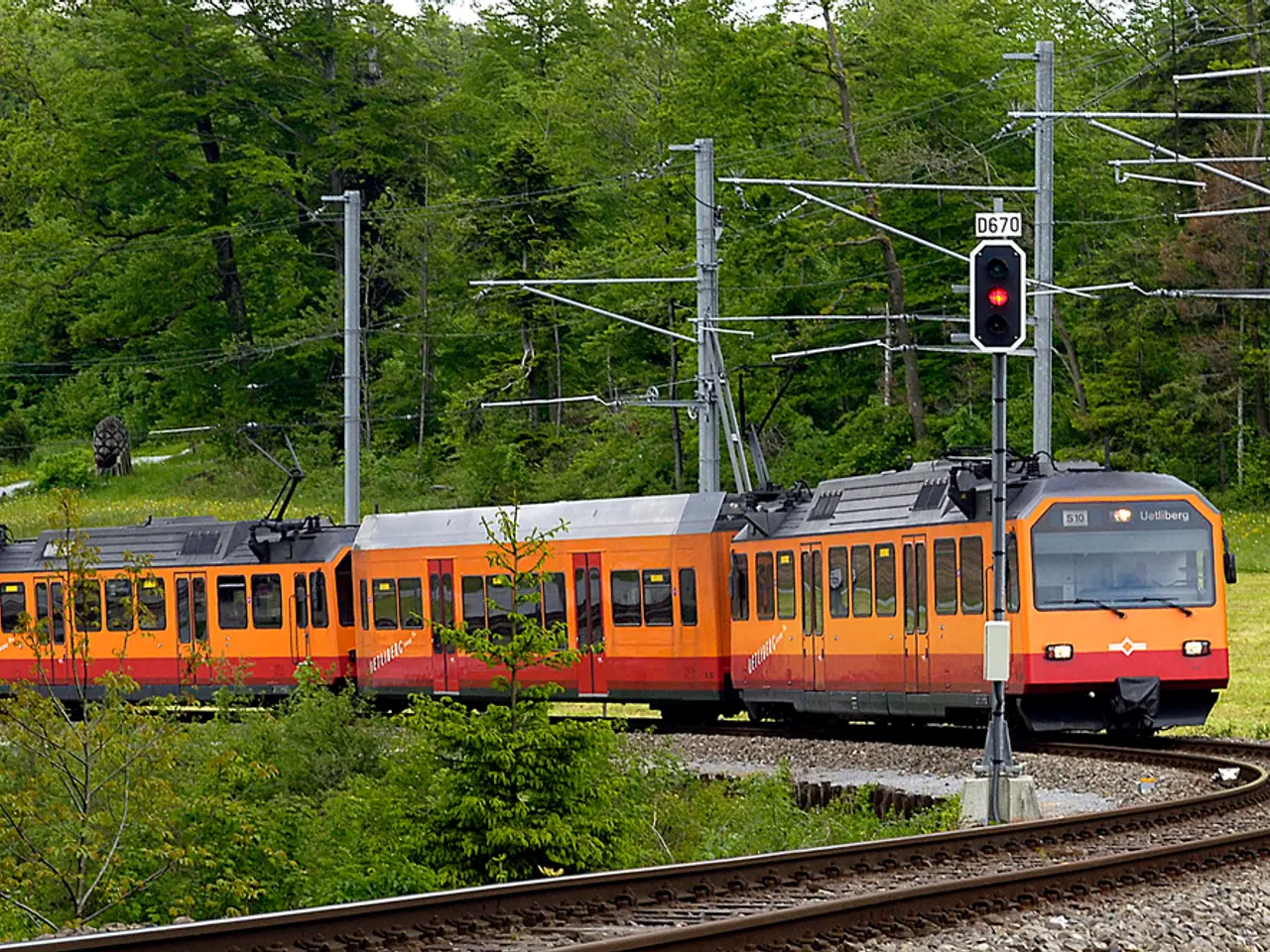Railway service on the Schönbuchbahn line may potentially be resumed following the release of its brakes.
New Electric Trains Arrive on Schönbuchbahn, but Challenges Persist
The Schönbuchbahn, a train line connecting Böblingen, Holzgerlingen, Weil im Schönbuch (all in the Böblingen district) and Dettenhausen (Tübingen district), is set to receive approval for new electric trains from Spanish firm CAF in the coming weeks. These twelve state-of-the-art, affordable, powerful, and environmentally friendly trains have been arriving from the Spanish town of Beasain since 2020, replacing the aging diesel-powered "Regioshuttles".
However, the introduction of these new trains has not been without its challenges. The passenger numbers have not developed as predicted in 2019; in 2023, they stood at 7,650, a far cry from the expected nearly double that number, around 14,000 daily passengers by 2025. This discrepancy has been a source of frustration for the district administrator, Roland Bernhard, who expressed his disappointment after both the first postponement in May 2024 and the second in December 2024.
The problem with the trains lies in their brake settings, which do not fit the bureaucratic mold as they are neither tram-like nor normal railway trains. This issue, coupled with the fact that the Federal Railway Authority treated the trains partly like a tram and partly like a railway train during the approval process, resulted in a lengthy and complicated four-year process.
The new trains run on electricity, a significant improvement over the diesel-powered trains. However, the electrification of the Schönbuchbahn, which took place from 2016 to 2019, was not without its challenges. Reinforcement buses are being used during peak hours, but they are not well-received. Maintenance costs for the aging diesel trains have increased by 30% since 2022.
Despite these challenges, the Schönbuchbahn's timetable is still feasible with the current speed limit of 80 kilometers per hour. The new trains, once they are fully operational, will have 94 seats and 161 standing places. The loan of the Zweckverband Elektrotriebwagen from Deutsche Bahn ended two months ago, and the Zweckverband Schönbuchbahn, which received the loan in 2019 to support regional transport services, will remain responsible for the new trains until the loan agreement ends in 2026.
In a recent meeting, Bernhard was "bitter, angry, and furious" after the second postponement, expressing his hope that the new trains will bring about a much-needed improvement in the Schönbuchbahn's reliability, which has noticeably declined, with frequent cancellations. The arrival of the new trains is a step towards modernising the Schönbuchbahn and improving its services for the benefit of its passengers.
Read also:
- Peptide YY (PYY): Exploring its Role in Appetite Suppression, Intestinal Health, and Cognitive Links
- Toddler Health: Rotavirus Signs, Origins, and Potential Complications
- Digestive issues and heart discomfort: Root causes and associated health conditions
- House Infernos: Deadly Hazards Surpassing the Flames








